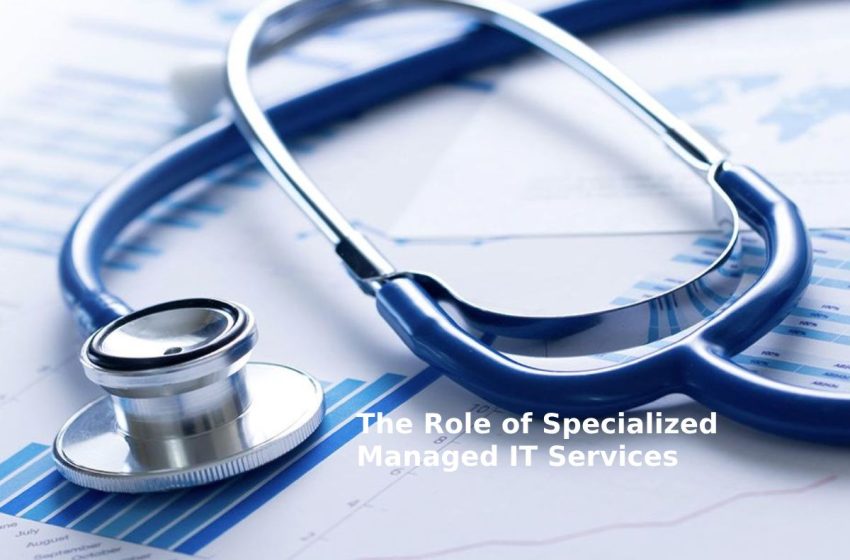
Enhancing Healthcare Delivery: The Role of Specialized Managed IT Services
A smooth-running IT infrastructure is the heartbeat of any healthcare organization, pumping data and insights across departments to enhance patient outcomes. However, with an array of complex clinical systems and growing regulatory demands, IT teams often struggle to keep pace. This strains IT budgets and directs focus away from developing innovative health technologies. To optimize workflows while ensuring robust data security and compliance, many leading healthcare companies partner with specialized Managed Service Providers (MSPs). These experienced IT partners offer 24/7 system monitoring, along with expertise fine-tuned for the healthcare arena. By leveraging managed IT services, care providers empower IT teams to enhance system performance rather than simply ‘keeping the lights on.’ The result? Healthcare companies can redirect resources toward advancing quality of care through emerging technologies.
Table of Contents
Challenges of Healthcare IT Departments
Healthcare IT departments face many challenges that can hamper their ability to focus on strategic initiatives to improve care. A few key challenges include:
Growing data security and privacy regulations
With protected health information (PHI) to safeguard and regulatory requirements to meet, IT teams spend extensive resources ensuring systems and processes adhere to HIPAA, HITECH, and other laws. As regulations increase in complexity, manual compliance tracking strains IT staff.
Complexity of updating hardware/software across clinical systems
Interconnected networks have various hardware and software elements – each requiring constant patching, upgrades, and maintenance. Mapping dependencies to limit vulnerabilities takes significant coordination and diligent work.
Shortage of trained IT staff
The specialized skills needed for managing intricate healthcare IT systems are in short supply. And with the high cost of staff recruiting and retention, many hospitals end up understaffed and overwhelmed by support tickets. This hampers response times and eats into the healthcare IT budget.
Rather than focusing on innovation, most IT departments are stuck in an endless cycle of maintenance and compliance upkeep. To resourcefully enhance healthcare delivery, organizations need support managing the ever-growing complexity of IT.
The Role of Managed IT Services
Managed IT services provide continuous expert management of healthcare organizations’ IT infrastructure and clinical systems. Key benefits include:
24/7 monitoring, data security and flexibility
Specialized managed service providers (MSPs) monitor systems round-the-clock to optimize uptime and performance. They implement robust security protocols to safeguard sensitive data. MSPs also rapidly scale services to match changing needs.
Streamlining workflows and data usage
By keeping systems running smoothly, MSPs allow clinicians to focus on patients rather than IT issues. They also help healthcare organizations derive insights from data to guide evidence-based care. MSPs stay on top of the latest healthcare technologies to improve patient outcomes through streamlined workflows and appropriate information system use.
By leveraging managed services, healthcare IT teams can direct more effort towards strategic initiatives that improve care delivery and power digital transformation rather than tactical day-to-day system maintenance. MSP partners integrate the sophistication of enterprise-level IT services with specialized expertise for revolutionizing healthcare.
Partnering with a MSSP
When selecting an MSSP, healthcare companies should consider the following:
Considerations when selecting an MSSP
- Industry experience with healthcare systems and data security regulations
- Ability to provide 24/7 real-time monitoring and response
- Use of advanced analytics for threat detection
- Staff skills and healthcare IT certifications
- Flexible support models that scale to needs
- Pricing structure that aligns to value delivered
Importance of domain expertise
MSSPs specializing in healthcare security bring insider knowledge of industry technologies, workflows and challenges. They understand nuances of interfaced clinical systems and health data particularities. This allows them to fine-tune their services to safeguard infrastructure integrity and care delivery.
Partnering with the right MSSP enables healthcare IT leadership to tap into leading-edge tools, battle-tested processes, and highly qualified talent to take their data security to the next level. The domain expertise of specialized healthcare Managed IT Service Providers is invaluable for transforming digital systems into competitive differentiators.
Conclusion
As healthcare organizations strive to provide superior patient care, robust IT systems are fundamental to support clinical and administrative workflows. However, with various specialized platforms, strict security/compliance requirements, and resource constraints, keeping healthcare IT networks operating optimally is an immense challenge. Managed IT services provide invaluable expertise to streamline IT management without sacrificing focus on patient care quality. Specialized healthcare MSPs can elevate data security, maximize technology ROI, optimize staff productivity, and raise the bar for population health programs. By tending to complex IT support tasks, outsourced experts become strategic partners in moving the needle for business-critical success metrics and clinical KPIs. Ultimately, managed IT services allow healthcare IT leadership to avoid innovation delays and show tangible improvements in safety, quality, efficiency and patient satisfaction. Partnering with an experienced healthcare-focused MSSP provides the talent and solutions to power transformation, today and in the future.


